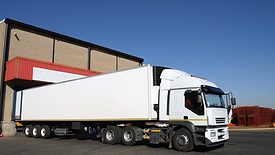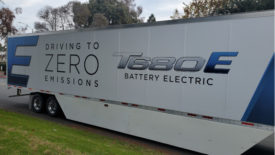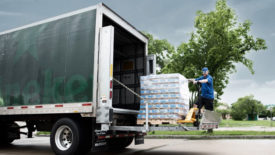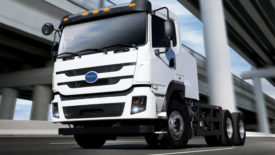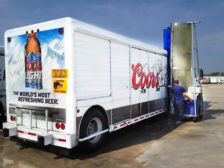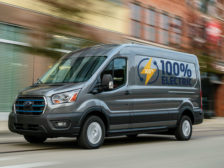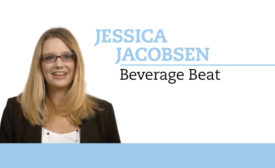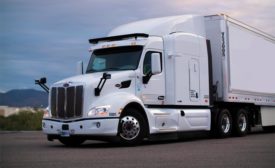Home » beverage fleet
Articles Tagged with ''beverage fleet''
A look at refrigerated bodies and trailers designed for today’s efficiency standards
Suppliers continue to innovate refrigerated body, trailer options as demand increases
January 31, 2022
PACCAR hosts editors at Kenworth Zero Emissions event
Truck manufacturer spotlights battery-electric, hydrogen fuel cell vehicles
January 28, 2022
Distribution
Liftgates continue to support rear-load delivery needs
Suppliers aid bulk-delivery models with upgrades to liftgates
December 28, 2021
2022 Trucks Report: Electric vehicles continue to dominate OEM new-equipment announcements
Trucks manufacturers highlight software improvements
November 30, 2021
Distribution
Sideload, non-CDL trucks driving a comeback
Current beverage delivery markets highlights benefits of sideloaders
November 2, 2021
Distribution
Emissions-free vans the future for OEMs
Trucks manufacturers announce investments in electric vehicle production
October 1, 2021
Beverage Beat
Study shows fleet market adjusting procurement strategies
Pandemic, supply chain impacting fleet delivery choices
September 17, 2021
Distribution
Urban landscape tricky to navigate for beverage distribution
Battery-electric trucks useful in urban areas
September 2, 2021
Distribution
Enhancements for comfort, ergonomics are driving today’s cab interiors
Equipment enhances operational efficiency while minimizing physical, mental stress
August 3, 2021
Elevate your expertise in the beverage marketplace with unparalleled insights and connections.
Join thousands of beverage professionals today. Shouldn’t you know what they know?
JOIN NOW!Copyright ©2025. All Rights Reserved BNP Media.
Design, CMS, Hosting & Web Development :: ePublishing

